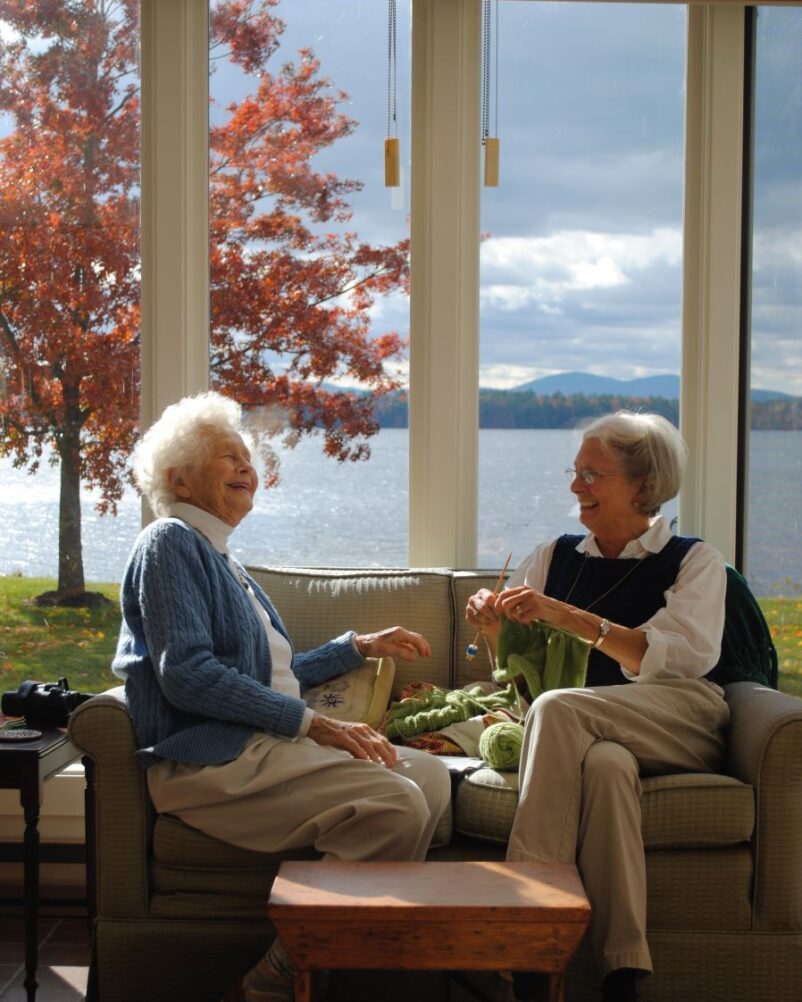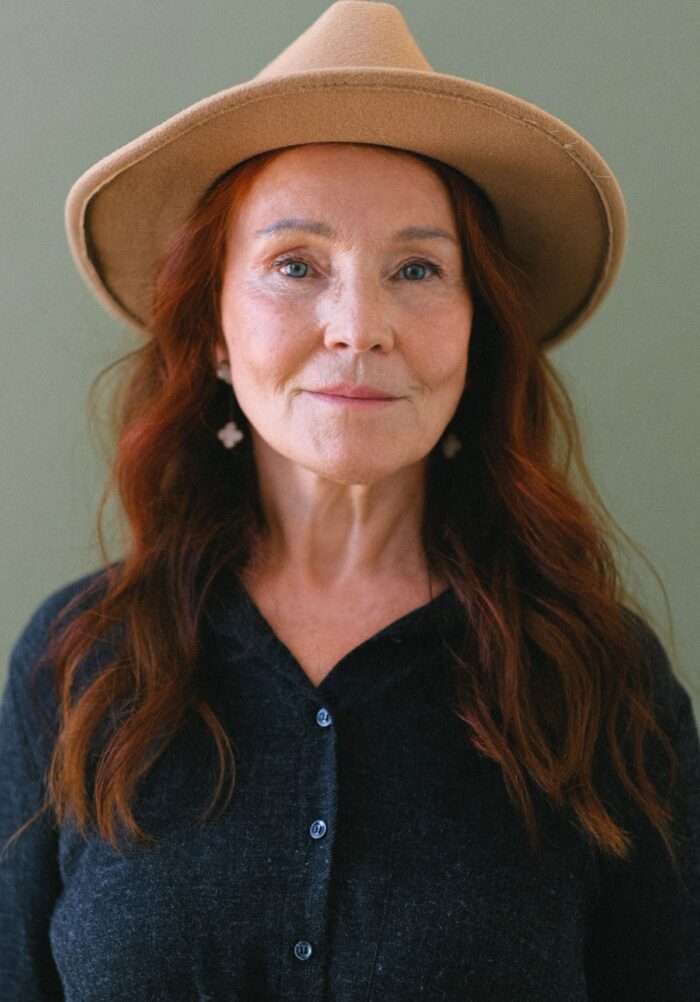
Depression and the elderly is often one of aging’s best kept secrets. That’s why the reality of depression in aging is hidden from others, and too often is dismissed as not being active or just feeling down.
But imagine waking up one day with no specific cause for your sadness—a cloud of melancholy hanging over you like an unwelcome guest. Now picture grappling with this unexplainable heaviness during your golden years when you’re told your life should be filled with joy and fulfillment as you age gracefully.
Depression and the elderly, or depression in aging in general, continues to be overlooked and misunderstood in society today, as if age alone is supposed to shield individuals from emotional turmoil.
But here’s the thing: feeling depressed doesn’t discriminate based on age or circumstances—it can affect everyone, even aging individuals who have weathered life’s storms and deserve to feel happy.
Depression and the Elderly: A Silent Struggle
Depression knows no bounds when it comes to age. While it might be easier to associate depression with younger individuals struggling with the pressures of school, work, and relationships, it’s important not to overlook the silent struggle that affects many older Americans.
In fact, depression in the elderly is often underdiagnosed and undertreated. This silence can stem from a combination of factors such as stigma surrounding mental health issues in older generations and a lack of awareness about the signs and symptoms.
One fresh perspective on depression in aging is the idea that this demographic may have unique triggers for their emotional distress.
As individuals enter retirement years, many seniors face significant life changes including loss of identity through retirement, losing friends or family members due to aging or illness, facing financial challenges on a fixed income, and dealing with declining physical health.
These factors can contribute to feelings of sadness, hopelessness, and isolation which can manifest into full-blown depression if left unaddressed. These conditions can continue until they manifest themselves into depression and the elderly.
Furthermore, another insight is that depression in aging is often masked as physical ailments rather than emotional struggles. Seniors may present symptoms such as chronic pain, fatigue, sleep problems or cognitive decline which are commonly dismissed as normal signs of becoming older.
This misinterpretation only adds to the difficulty in accurately diagnosing mental health disorders in this population; hence why depression and the elderly remains an invisible battle for so many older individuals.
Understanding Depression and the Elderly
Depression and the elderly population is a serious and often overlooked issue. While it is true that aging comes with its own set of challenges, such as physical disabilities or the loss of loved ones, these are not the only reasons for depression in seniors.
In fact, research shows that biological factors can play a significant role in causing depression in aging.
One possible explanation for depression and the elderly is changes in brain chemistry. As we age, there is a natural decline in certain neurotransmitters involved in mood regulation, such as serotonin and dopamine.
This imbalance can lead to feelings of sadness and hopelessness. Additionally, other medical conditions common among seniors, such as heart disease or chronic pain, can contribute to the onset of depression.

Another important aspect to consider when understanding depression and the elderly is social isolation. Many seniors face increased loneliness as they age due to factors like retirement or limited mobility.
This lack of social interaction can exacerbate feelings of sadness and despair. It highlights the pressing need for society to place more emphasis on fostering connections and support networks for our senior population.
Overall, it is crucial to recognize that depression in aging should not be dismissed as simply normal or an inevitable part of growing older.
By understanding the various causes and complexities behind depression in this population, we can work toward creating effective interventions and support systems that promote mental well-being for our loved ones of all ages.
Factors Contributing to Depression and the Elderly
As we age, our risk of developing depression increases. There are several factors that contribute to the heightened risk of depression in aging. One key factor is the loss of loved ones.
As we grow older, we may experience multiple losses, such as the death of a spouse, family members, or friends. The grief and sense of isolation associated with these losses can often trigger or exacerbate symptoms of depression in aging.
Another contributing factor related to depression and the elderly is the physical decline that comes with aging. Senior individuals may face chronic health conditions like arthritis or heart disease, which can limit their mobility and independence.
Dealing with these physical limitations can be emotionally challenging and lead to feelings of frustration, sadness, and hopelessness.
Financial difficulties are yet another major contributor to depression and the elderly. Many retired individuals live on fixed incomes and may struggle to make ends meet.
This financial strain can create significant stress and anxiety about basic needs like housing, healthcare expenses, and other essential items.
All these factors combined reveal an intricate web in which seniors find themselves entangled when it comes to mental health challenges like depression.
Understanding these contributing elements related to depression in aging is crucial for providing adequate support and care for our senior population.
Signs and Symptoms of Depression in Aging
Depression is not limited to any specific age group. While it is often associated with younger individuals, older adults are also susceptible to this mental health condition.
However, depression and the elderly can be more complex and harder to recognize compared to other age groups. It is crucial for family members, caregivers, and healthcare professionals to be aware of the signs and symptoms of depression in aging individuals.
One common sign of depression and the elderly is a persistent feeling of sadness or emptiness that lasts for weeks or months on end. This feeling may not always have an obvious explanation or trigger, but it often interferes with daily activities such as eating, sleeping, and social interactions.
Another key symptom to look out for is a loss of interest or pleasure in activities that were once enjoyable. Older adults experiencing depression may avoid hobbies they once loved or withdraw from social events they used to look forward to.
Symptoms of depression among older adults can also manifest physically. Chronic pain without an identifiable cause could indicate underlying depressive feelings. Additionally, changes in appetite and weight loss could be signs of depression in seniors as well.
Other red flags include difficulty concentrating or making decisions, increased fatigue and restlessness, feelings of worthlessness or excessive guilt over minor issues, as well as recurrent thoughts about death or suicide.
Understanding the signs and symptoms of depression in aging adults allows for timely interventions that can greatly improve their quality of life.
If you notice these behaviors in yourself or someone you know who is getting older, reach out for professional help from specialized therapists.
The Importance of Addressing Depression in Aging
Senior depression is a pressing issue that often goes unnoticed or ignored in society. With the aging population on the rise, it becomes imperative to address this mental health condition with empathy and understanding.
Many seniors experience depression due to a variety of factors, such as loneliness, loss of loved ones, physical limitations, and chronic illnesses.
However, what makes senior depression in aging even more challenging is that it is often mistaken for normal signs of aging or brushed off as just a phase.
This dismissive attitude only perpetuates the problem and prevents seniors from seeking the help they desperately need.
Recognizing and addressing senior depression is crucial for their overall well-being and quality of life. Depression not only affects an individual’s mental health but also has detrimental physical consequences.
It can weaken their immune system, exacerbate existing health conditions, increase vulnerability to diseases like dementia, and even lead to premature death.
By acknowledging the importance of addressing senior depression in aging, we have an opportunity to create meaningful change in our society by advocating for improved mental healthcare access for seniors and spreading awareness about the prevalence of this silent epidemic.
It’s important to understand that addressing senior depression in aging goes beyond just providing medical treatment; it requires taking a holistic approach.
Seniors need social support networks that prioritize their emotional well-being and offer opportunities for engagement in activities they enjoy. Building community programs that connect seniors with others who share similar interests can greatly alleviate feelings of isolation and provide much-needed social interaction.
Additionally, incorporating regular exercise routines tailored to suit their abilities can boost mood
Strategies for Supporting Depression in Aging
Strategies for supporting seniors with depression rely on a holistic approach that acknowledges the unique challenges they face. It is essential to encourage open communication and provide a safe space where seniors feel comfortable expressing their emotions.
Encouraging them to talk about their feelings can help alleviate some of the isolation and shame often associated with depression in older adults.
 Additionally, organizing social activities and programs specifically designed for seniors can also play a significant role in combating depression.
Additionally, organizing social activities and programs specifically designed for seniors can also play a significant role in combating depression.
Engaging in group exercises or hobbies not only helps break the cycle of loneliness and boredom but also fosters a sense of belonging.
Implementing regular health check-ups that focus on mental well-being can help identify early signs of depression and ensure timely intervention. Educating families and caregivers about the common signs and symptoms of depression and the elderly can potentially lead to early recognition and appropriate support systems being put into place.
By adopting these strategies, mental health issues among senior citizens can be highlighted while promoting inclusivity, empathy, and active involvement from everyone in their immediate environment. It is crucial to remember that feeling depressed without an apparent reason should be taken seriously, as understanding this phenomenon will contribute towards building healthier communities for our aging population.
Breaking the Stigma, Promoting Mental Health with Depression in Aging
Breaking the stigma surrounding mental health is crucial in promoting overall well-being for seniors. By acknowledging that feeling depressed without a specific reason is a valid reason to seek help, we open up the conversation and provide much-needed support.
It is essential to recognize that mental health challenges can affect anyone at any age, and seniors should not be overlooked or dismissed.
Promoting mental health among seniors requires a multi-faceted approach. First and foremost, education and awareness campaigns are needed to inform both seniors themselves and their caregivers about the signs of depression and other mental health conditions.
Additionally, providing accessible resources such as support groups or counseling services tailored specifically for older adults would go a long way in addressing their unique needs.
Addressing mental health issues in seniors should also involve fostering a sense of community and connection. Many older adults may feel isolated or lonely, which can contribute to feelings of depression.
Encouraging social engagement through activities like volunteer work, hobby groups, or intergenerational programs can help with finding happiness after 50 while promoting overall mental well-being.
By breaking the stigma around mental health in seniors and promoting open conversations about depression in aging even without an apparent cause, we have the opportunity to significantly improve the lives of older adults.
Through education, accessible resources, and fostering community connections, no senior should feel alone or unsupported in a journey toward better mental health.
Contact Us
Written by
Robin McClure
Robin is the author of 7 parenting books and has 3 grown children, 3 spoiled rescue dogs, and a very understanding husband. She holds a bachelor's degree in journalism and a master's degree in communications, and spends her time writing, drinking coffee, and planning the next grand adventure.



